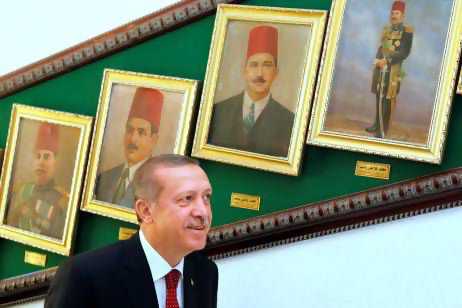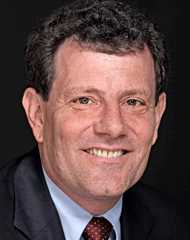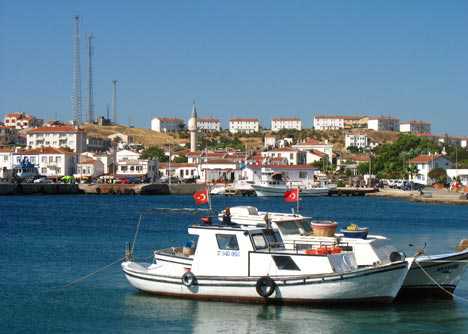David Lepeska

Muslim Nationalism and the New Turks
Jenny White
Princeton University Press
Related
- ■ Turkey is a model for every Muslim state, Recep Erdogan says
- ■ The rise of Recep Erdogan, from street snack seller to Middle East Muslim champion
- Iran-Brotherhood ties: rooted in history with eye on future
- Books essays
- Turkey
One evening in September 2011, thousands of Egyptians heralded the arrival of Turkish prime minister Recep Tayyip Erdogan at Cairo airport with cheering and shouts of “Allahu Akbar!” Many of the well-wishers were members of the Muslim Brotherhood, the rising Islamist organisation that has in recent years cited Erdogan and Turkey as an inspiration. On his first post-Arab Spring visit to the region, observers expected the tough-talking leader of the world’s most successful Islamist party to offer support and guidance.
But in his speech that night, Erdogan explained that Turkey was a secular, rather than an Islamic, democracy, and advised Egyptians to build a state that respects all religions. Days later, in Tunisia – where the leading political party, Ennahda, has also acknowledged the influence of Erdogan’s party – he explained his remarks. “A person is not secular; the state is secular,” Erdogan said in Tunis. “A Muslim can govern a secular state in a successful way.”
Though likely to disappoint ascendant Arab Islamists, this idea of a personal Muslimhood, free from state oversight, is at the centre of Turkish life today. It’s also the focus of Muslim Nationalism and the New Turks, a deeply insightful book by Jenny White, a professor of social anthropology at Boston University. As a number of nationalist groups battle for Turkey’s soul, White sees the “new Turks” strutting on the world stage, remaking Muslim democracy and finding great pride in their Ottoman past and their ability to consume God and goods as they choose.
***
With the founding of modern Turkey in 1923, Mustafa Kemal, later given the name Ataturk, or father of the Turks, began to remake Turkey as a westernised republic in which an authoritarian government oversaw religion. Ataturk also established the Turkish national identity, centred on Muslimhood, racial purity, and Turkish language and culture.
The Turkish military soon emerged as the guarantor of secularism, repeatedly stepping forward to push out leaders it thought had compromised Kemalist ideas. To this day, says White, the Turkish army purges its officer corps of anyone who refuses to drink or whose wife wears a headscarf.
To outsiders, the 2002 rise of Turkey’s Islamists seemed at the time a startling event. But White’s hindsight outlines a natural progression, linked to globalisation and the broader, regional resurgence of Islam. Starting in the 1970s, the Turkish military allowed greater Islamic freedom, with open discussions in the press and in public about Islamic intellectuals like Maulana Mawdudi and Sayyid Qutb.
The country’s first Islamist political movement appeared in 1975, when a group led by Necmettin Erbakan released its National Vision, a pro-business platform linking Islam to nationalism. In the 1980s, the success of thousands of pious businessmen from the Turkish heartland, dubbed the Anatolian Tigers, gave rise to a more conservative elite and to influential networks like the followers of religious educator Fethullah Gulen.
Erbakan’s Welfare Party stood against westernisation and secularism and preferred alliances with other Muslim countries to Nato, the European Union (EU) and Israel. Yet it was also seen as forward-looking, progressive and pro-Turkey, and had support in small towns and major cities, among rural women, urban professionals and the Anatolian Tigers. The party gained ground, and in 1994 mayoral elections, its candidate, Recep Tayyip Erdogan, became mayor of Istanbul.
By the time Erbakan became prime minister two years later, 40 per cent of the party’s supporters were secularists, and Welfare had emerged as Turkey’s modern political party. To the military, of course, that meant Erbakan had to be pushed from office and the party shut down. Its successor, the Virtue Party, rose quickly, until it too was banned in 2001. But that same year, Erdogan founded the Justice and Development Party (AKP), adding an embrace of globalisation to Erbakan’s vision and downplaying the Islamist elements. The party won the 2002 elections and has dominated Turkish politics ever since.
***
On the surface, Turkey’s AKP decade has been one of social stability, economic growth and hope for the future. But White reveals how the public discourse has fractured. As Ataturk’s vision has collapsed, Turks have splintered into a million shifting shades of nationalism: Kemalist, Islamist, rightist, ultranationalist, neonationalist, liberal and more.
Despite their disagreements, all these groups place great value on the country’s Ottoman past. Today, the year that most evokes Turkish pride is not 1923, but 1453, when Constantinople fell to the army of Sultan Mehmet II. That victory is now celebrated in malls and history museums, bestsellers and popular soap operas.
Ottoman glories also undergird Turkey’s new quasi-imperialist foreign policy. Ahmet Davutoglu, Turkey’s bold foreign minister, often speaks of reintegrating the greater Middle East to “bring back the golden era”.
“Since 2002, when the AKP won its first major election,” writes White, “an Islamist vision of political life has given way to a Muslim nationalist vision that is focused less on a shared global umma and more on a structured relationship with the Muslim world in which Turkey takes a leading role, as it had in Ottoman times.”
We see this in Turkey’s toughness with Israel and the creation of a visa-free zone with Syria, Jordan and Lebanon. Yet just as Turks treasure their Ottoman heritage, they also see themselves, and their religion, as distinctly un-Arab. “One thing all nationalists agree on,” writes White, “is that Turkish Islam differs from Islam tainted by Arab influence.” But what does that mean? How can Islam be uninfluenced by the people who midwifed its birth? Speaking to White, Omer Ozsoy, a reformist theologian at Ankara University, wonders: “While reading the Quran, to what extent am I facing an Arab reality and to what extent the demands of Allah? We have to distinguish between these.” Such comments might be blasphemous in many Sunni Arab-dominated countries, but Turkish Islam has been steeped in centuries of moderate, Sufi ideology.
Turkey’s leaders stress a modern, personalised Islam, as suggested by Erdogan’s remarks in Tunis. The new Turk can wear Gucci and still go proudly and with purpose to Friday prayers. With more than half the country’s population under 30, this marks a profound shift. “The choice to be suurlu, a ‘consciously believing Muslim’, as opposed to blindly following tradition, has become highly valued as a sign of Muslim modernity,” White writes.
The word “tradition” has become shorthand for Wahhabism, Salafism, and other deeply conservative Sunni belief systems that have gained a foothold across the broader region. “This government is rather different than the Muslim Brotherhood,” Ceylan Ozbudak, the executive director of the talk show Building Bridges, said during a recent episode. She and her co-hosts explained that they didn’t like the word “Islamist”. “We have a Muslim government,” Ozbudak explains, “but they apply the rules of Islam, not the rules of tradition.”
Indeed, Erdogan has said he views Sharia not as a strict legal code but as “a metaphor for a just society”. The country has no influential, deeply rooted religious establishment, no body akin to Egypt’s millennium-old Al Azhar – which is mentioned in that country’s new constitution – or Saudi Arabia’s powerful ulema. This allows AKP leaders to determine, largely free of outside influence, how to build a 21st-century Muslim democracy, and forge a new national identity.
***
White uses her fluent Turkish and more than 30 years of extended stays in the country to flesh out this bold and unpredictable social and political experiment. Of her two previous non-fiction works on Turkey (White has also written three Ottoman-era crime novels), the second, Islamist Mobilization in Turkey, won the 2003 Douglass Prize for best book of European anthropology. White is indeed an anthropologist, rather than a journalist or political analyst, and her book goes on to detail the uncertain place of women in 21st-century Turkey and the “contradictory nature of Turkish social and political life as it accommodates individual choice while validating primacy of family and community in determining ethics and norms.”
But academic jargon of that sort is rare; the writing is generally clear and straightforward, and the book is chock-full of rich titbits from Turkish society. White highlights changing fashions among Turkey’s elite in the evolution of the word for squatters – from gecekondu (literally, “placed there at night”) in the 1970s, to varos, a Hungarian term referring to an area beyond the city walls, today – and the sudden disfavour of moustaches. Once a proud, defining facial feature for nearly every Turkish man, they now signify the meaner classes (“men from the varos”).
White has a clear affection for Turkey, which may serve to mute her criticism. Though she does briefly discuss the vast Ergenekon trial, in which a shadowy group of 200-odd military, police, journalists and activists have been accused of plotting to overthrow the government, she neglects to discuss the government’s oppression of journalists until the book’s final pages. And she mentions Ahmet Sik, a journalist who has spent the past year in prison awaiting a verdict on questionable, Ergenekon-related charges, only in her endnotes.
Yet crackdowns on the press have been skyrocketing. No country jailed more journalists than Turkey in 2011, including China and Iran, and no country is currently holding more reporters in prison. In recent months, the European Union and the London-based writers organisation PEN International have criticised the Erdogan government for using antiterrorism laws to justify arrests and create a climate of fear.
A greater oversight may be the short shrift given to Turkey’s long-suffering Kurds. Kurdish militants have since the late 1970s fought the Turkish government for their own state. But the vast majority of Kurdish Turks, estimated at 13 million, or about 16 per cent of the country’s population, seek only to maintain their own language and traditions. The willingness of the Erdogan government to accept and integrate them is key to the country’s future.
White does better detailing how the state and society marginalise non-Muslims. She visits Ishak Alaton, an 82-year-old Jewish Turk and a well-known entrepreneur, who says he “has never been given the feeling by this nation that I am part of it”. The Turks even have a word for such people: vatandas, non-Muslim minorities, who can be citizens but not true Turks. She also points out how the authorities, the military and the media regularly voice concerns about the threat of Christian missionaries, engendering widespread fear and occasional, vicious attacks on priests.
***
Filled with insight, Muslim Nationalism and the New Turks is sure to become a leading text for those looking to read the Turkish tea leaves – a readership on the rise of late. In her conclusion, White considers the Turkish model, acknowledging similarities between Turkey and newly free Arab countries. Ultimately, the differences win out.
Turkey was never conquered and colonised, and is thus able to view western ideas with interest, rather than suspicion. It has been a democracy, or has at least resembled one, for 90 years – time enough to strengthen its institutions and solidify its political system. Finally, decades of economic growth have created a large, globalised middle class able to balance Islam with modern living.
Speaking at a political conference in 1998, Erdogan quoted from an Islamic poem: “Democracy is just the train we board to reach our destination. The mosques are our barracks, the minarets our bayonets.” How did he go from there to the secular Muslim statesman of today? Perhaps it was the five-year political ban that came as a result. Perhaps his time in office, bumping up against the possible, altered his perspective. Perhaps he hasn’t changed at all, and we’ll find with his government’s release of an updated constitution later this year that he has merely been biding his time.
Whatever the case, Islamist groups like Egypt’s Muslim Brotherhood are unlikely to emulate Turkey’s Muslimhood model anytime soon, though the AKP vision might suit the young activists of Tahrir Square. Yet, if Turkey’s history is any indication, their time in power is decades of democratic and economic development away.
David Lepeska is a freelance writer who contributes to The New York Times, Atlantic Cities and Monocle, and previously served as The National’s Qatar correspondent. He lives in Chicago.




